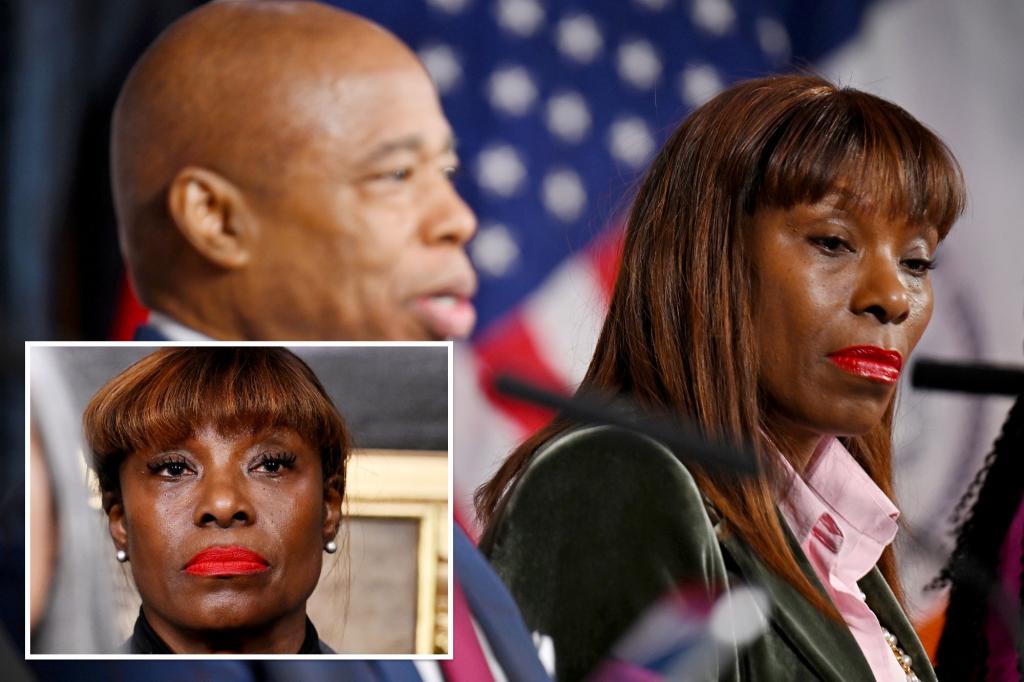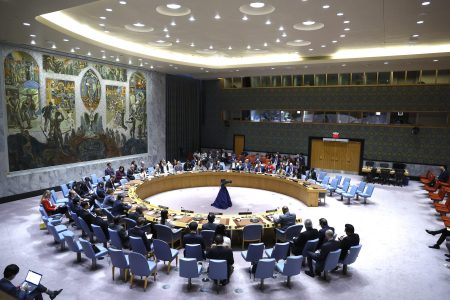The abrupt resignation of Ingrid Martin-Lewis, a top aide to New York City Mayor Eric Adams, has sent ripples through City Hall, raising questions about the stability of the Adams administration and the ongoing investigations into alleged corruption within the mayor’s inner circle. Martin-Lewis, who confirmed her resignation on Sunday, characterized it as a retirement, yet the timing, a full month earlier than her anticipated departure, suggests a more complex scenario. Her exit follows a series of controversies, including a raid by the Manhattan District Attorney’s office on several of Adams’ aides, during which Martin-Lewis’s cellphone was seized as part of a federal subpoena. The investigation reportedly centers on allegations of corruption involving city contracts, adding another layer of complexity to an already tumultuous period for the Adams administration.
The circumstances surrounding Martin-Lewis’s departure point to a strained relationship with Mayor Adams, despite their long-standing alliance. While they were once close allies, reports indicate a growing rift between the two in recent months. This tension coincides with increased scrutiny of Adams’ administration, particularly following the mayor’s own indictment on charges of accepting illegal donations and gifts from wealthy foreign individuals, including Turkish officials. Furthermore, sources suggest that Governor Kathy Hochul had pressured Adams to remove Martin-Lewis from his administration, adding external pressure to an already precarious internal situation. The combination of internal conflicts and external pressure paints a picture of an administration grappling with instability and facing increasing challenges.
The investigation into Martin-Lewis’s involvement in city contracts adds a significant layer of legal jeopardy to her sudden departure. Sources indicate that the Manhattan District Attorney’s office is actively investigating her role in these contracts, raising the specter of a potential indictment. This investigation adds to the growing list of legal challenges facing the Adams administration and further underscores the cloud of suspicion surrounding the mayor’s inner circle. The possibility of an indictment looms large, adding pressure on Martin-Lewis and potentially implicating others within the administration. This investigation threatens to further destabilize the mayor’s office and undermine public trust in city government.
Adding to the intrigue surrounding Martin-Lewis’s resignation is her role in the aftermath of the initial raids on Adams’ staffers. Following those raids, Mayor Adams reportedly preferred allowing the implicated staffers to resign rather than directly firing them. When the staffers failed to resign, Martin-Lewis was reportedly tasked with carrying out their dismissals. This puts her in a complicated position, having been involved in the aftermath of an investigation that now appears to be targeting her directly. The irony of her involvement in the previous dismissals, coupled with her current predicament, highlights the precarious nature of serving within the Adams administration during this period of intense scrutiny.
The sequence of events leading to Martin-Lewis’s resignation reveals a complex interplay of personal relationships, political pressure, and legal investigations. Her long-standing friendship with Mayor Adams, once a source of strength and influence, appears to have deteriorated under the weight of the ongoing scandals. The pressure from Governor Hochul to remove Martin-Lewis from the administration adds a political dimension to the situation, suggesting a broader effort to distance the state government from the controversies engulfing City Hall. The ongoing investigation by the Manhattan District Attorney’s office adds the most serious element, with the potential for criminal charges hanging over Martin-Lewis and potentially impacting other members of the Adams administration.
The resignation of Ingrid Martin-Lewis represents more than just the departure of a single aide. It symbolizes the deepening crisis facing Mayor Eric Adams and his administration. The confluence of internal conflicts, external pressure, and ongoing investigations has created a volatile atmosphere within City Hall, raising serious questions about the mayor’s leadership and the future direction of his administration. The ongoing investigations, coupled with the potential for further indictments, threaten to further destabilize the mayor’s office and erode public confidence. The fallout from Martin-Lewis’s departure is likely to continue reverberating through City Hall, leaving a cloud of uncertainty hanging over the Adams administration.










